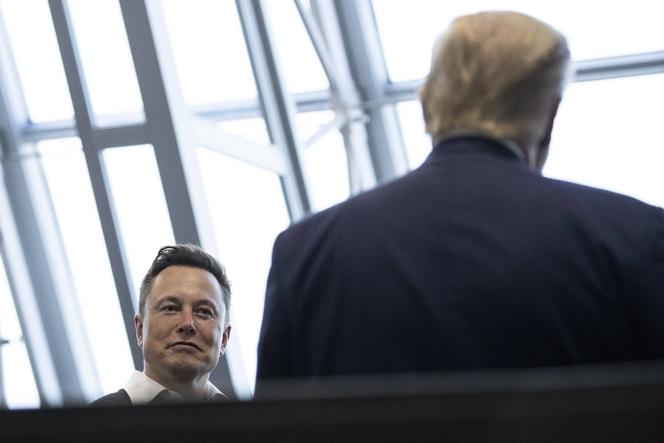


The dam broke in January 2024 when Jamie Dimon, the iconic CEO of JP Morgan and Wall Street boss, gave Donald Trump his absolution. "Take a step back, be honest. He was kind of right about NATO, kind of right on immigration. He grew the economy quite well. Trade tax reform worked. He was right about some of China," said Dimon on January 17 at the Davos Forum in Switzerland, adding that he would be fine with the election of either Trump or Joe Biden: "We will deal with both. My company will survive and thrive with both."
Because of the need to protect his bank in the event of a change of leadership, his obvious personal benefit in a Republican administration that would be more pro-business than Biden's, and his personal ambition – he has never hidden his desire to get into politics – Dimon is the embodiment of a business community flying to Trump's rescue despite their mixed feelings about the candidate.
For weeks now, despite his criminal conviction for having bought a porn actress's silence in 2016 regarding an alleged sexual relationship, Trump has been making a comeback in "big business." Despite being given up for dead after the January 6 assault on the Capitol, the Republicans' failure to impose another candidate, be it Florida Governor Ron DeSantis or former South Carolina governor Nikki Haley, has led some big CEOs to reconsider their position. Between Biden, who has pursued the most left-wing policies in half a century, and Trump, they dislike Trump the least.
The most high-profile example is Tesla CEO Elon Musk, even though his change of heart was no foregone conclusion. As former Democratic Representative Joe Cunningham noted in the Wall Street Journal, "Elon Musk should be a Democrat. He flirts with Trump, but his businesses are in line with Biden’s priorities," citing Tesla's support for the energy transition, industrial appeasement with China and concern about artificial intelligence.
In truth, it was Biden who lost Musk when he convened a White House forum of electric automakers in the summer of 2021 without inviting him because Tesla's factories didn't allow union representation. Even the venture capitalist Reid Hoffman, founder of LinkedIn and Democratic supporter, criticized Biden's decision. "To have an electric vehicle summit where you don't invite Elon is just ludicrous," Hoffman said this winter. This narcissistic injury was compounded by Musk's drift to the far right. In May 2022, Musk broke with the Democratic Party, which he accused of being woke and "becoming the party of division and hate."
You have 79.06% of this article left to read. The rest is for subscribers only.
